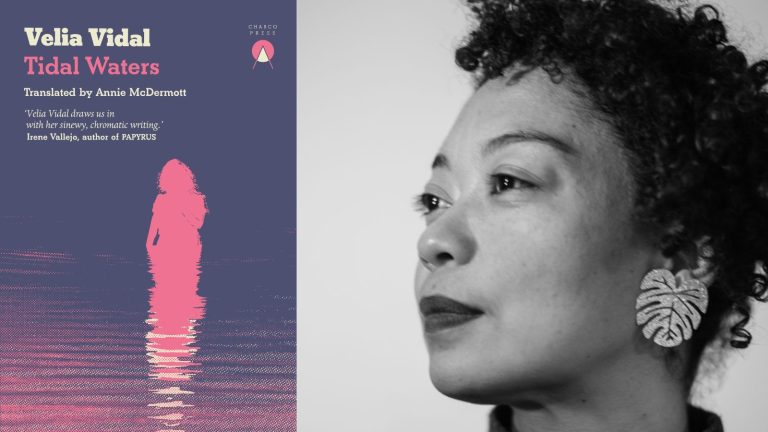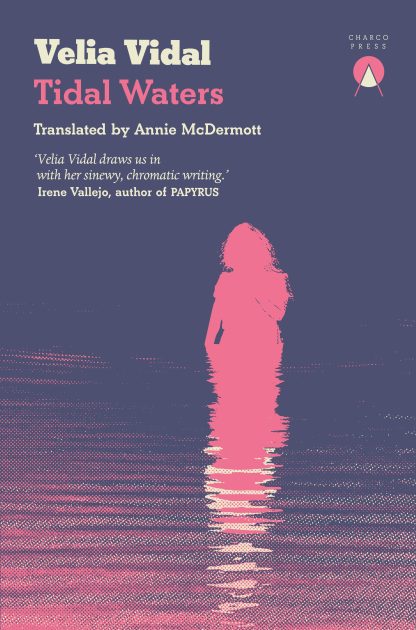
Tidal Waters by Velia Vidal: A Familiar Account From “The Jungle Between Two Seas”
30 July, 2024Dear friends in appreciation of good writing and personal stories,
I have finished reading Velia Vidal’s Tidal Waters, a personal piece set against the backdrop of Chocó, on the Pacific side of Colombia. I wanted to write to you about it with my recommendation, as it is a very interesting account offering wonderful insight into Chocoan culture.
The book is structured as a series of letters from the author to a close, unnamed friend, (like you are to me) through which the author’s experiences are set out. After moving from the big city of Medellín to the coastal town of Bahía Solano, she is working on her project, the Motete Educational and Cultural Corporation which works to promote reading and culture in Chocó.
In the letter dated 22 March 2018, Vidal shares with her friend her speech from the opening of the first Chocó Festival of Reading and Writing (or “FLECHO”). The speech in its written form is fantastic; and although I would recommend the entire book, the speech alone is a must-read. Vidal explains that Chocoans have a “unique perspective” “that could only ever come from Chocó, this great jungle between two seas. One of the most biodiverse corners of the world, which finished off its beauty with a huge historic mistake: slavery, a mistake we find painful and condemn, but which, in the long run, has allowed us to complete the circle of biodiversity and given this place, already so rich in nature, the good fortune to be inhabited not solely by Indigenous people, but also by mixed-race mestizos and direct descendants of Africa.” It is clear that Chocó’s striking nature is so powerful that it courses through the veins of its people.
A significant element of Vidal’s writing is the very prominent influence of the emotional landscapes of Chocó. Its geographic and historical features breathe a particular form of life into Vidal’s accounts. Not to mention that sharing the unique culture of the people from this region is a key driving force behind the novel, the reason for the author’s move in the first place and the foundation for the Motete project. As Vidal writes freely (this, my friend, may even be a bit of an understatement), the reader also gains insights into her own thoughts and personal life events.
The lyrical language of the book is water: its spirit, its flow, its journey, its interaction with its surroundings and the systems with which it is integrated. References are made consistently to the Pacific Ocean (there is one in the opening line), the Guapi river and the Quito river. Vidal writes about a sensation she calls “absence of sea”, an emotional state that she may develop from time to time that is its own particular strong yearning.
Many social and cultural aspects of Chocó are highlighted in Tidal Waters. A key example is the motete, a basket used by Indigenous people for carrying food, with a strap that goes over the head. It is chosen by Vidal as the name of her foundation and project:
“The thing is, motetes have always been used to carry food for the body: plantains, bushmeat, fish. Our idea is to fill them with food for the soul: art, culture, books. And just as motetes are woven by hand, I thought these new contents would also form a fabric: the fabric of society, of community, the fabric of the soul.”
The word motete, as Vidal explains in her speech, is a Caribbean and Pacific word, but there is an exact equivalent in Emberá. It turns out that the Emberá group is Colombia’s third-largest Indigenous people with an estimated population of around 196,115 people, with at least half of those residing in Chocó. This group of people have a strong oral storytelling culture, which comes under threat from violence and occupying forces in Chocó and elsewhere.
In Tidal Waters there is familiarity between the author and reader, given Vidal’s stylistic choice of writing letters to a close personal friend, as I now do to you. Vidal also often ruminates on the subject of friendship, of love and of human connection. I particularly like how the book is a tribute to long-distance adult friendships. In a letter dated 26 June 2017, Vidal writes about how her and her friend have seen each other only once and communicated very little within the last year but that she still feels closeness:
“I don’t hear your voice, but something makes me feel that I have a part of you. I’m not quite sure what I mean by have, since I’m no great fan of possessives; it’s more the sense that you’re always near, and a strange certainty that I can count on you.”
While Vidal’s pull to Chocó for all of its natural features and rich culture is clear, I was reminded, reading these letters and seeing Vidal’s attitude to holding dear those friends who are far away, that having that friend somewhere is something to really be thankful for.
Sending you all my best, and looking forward to your reply once you have read the book,
S
Velia Vidal was born in Bahía Solano, Colombia in 1982. For Tidal Waters, her debut novel, she won the Afro-Colombian Authors Publication Grant awarded by Colombia’s Ministry of Culture. She is also a journalist and specialist in social management and communication and in 2022 she was chosen by the BBC as one of the 100 most influential women in the world. Tidal Waters is translated by Annie McDermott, and published by Charco Press.
Follow Sounds and Colours: Facebook / Twitter / Instagram / Mixcloud / Soundcloud / Bandcamp
Subscribe to the Sounds and Colours Newsletter for regular updates, news and competitions bringing the best of Latin American culture direct to your Inbox.


